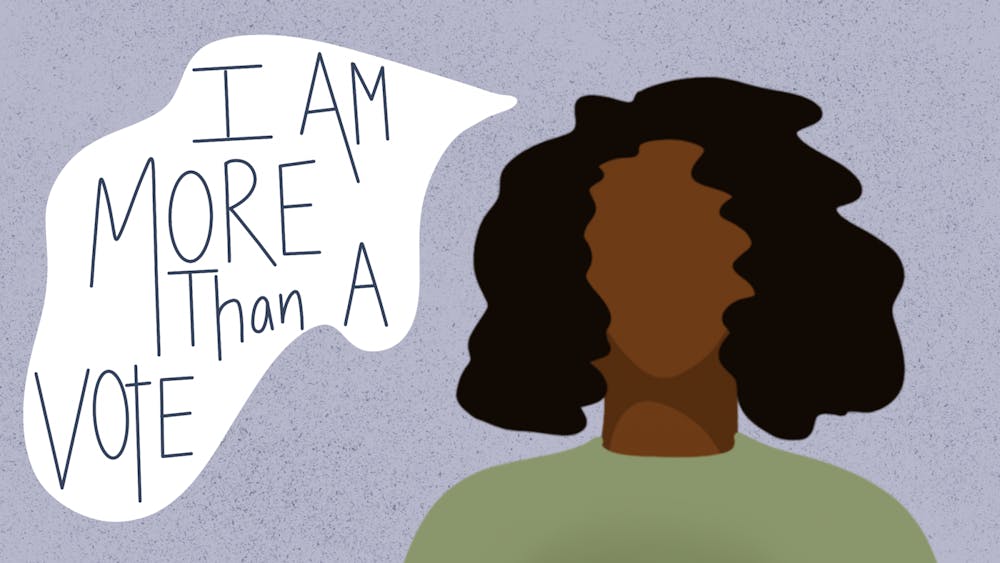The 2020 presidential election has been a trending topic of the past nine months. The media’s coverage of voter registration, presidential campaign ads, the encouragement of non-voters to vote and news about nominees have permeated our everyday lives.
But we have seen this all before.
In 2004, CEO and music mogul P. Diddy launched the popular campaign, ‘Vote or Die.’ Diddy launched this campaign because he believed that President George W. Bush made decisions that were life-threatening to many Americans. This campaign focused on registering people to vote, making voting look cool and giving non-partisan information to disenfranchised communities.
Diddy also expressed the need to empower people to make changes within their community. He sent this message by pushing people to vote.
Despite a strong push, Bush remained president for four more years, and poor and minority communities continued to be left behind by the U.S. government.
In 2020, this narrative seems to be repeating itself. We have a president many people want out of office, the opposing presidential candidate is not favorable to minority communities and we are translating the change of generational problems in America into a vote.
There is an obsession with claiming voting to be the measure of citizenship. This has, in turn, reduced the experiences of minority and vulnerable populations to a ballot.
President Donald Trump must not be reelected. We cannot afford to manage another four years with an unstable, egotistical, racist and xenophobic president. But, the issue does not all lie with Donald Trump. He is a symptom of a corroded democracy that has failed to live up to its promises, especially for Black people.
In "How to be an Anti-capitalist in the 21st Century," author Erik Olin Wright describes a democratic society to be one in which “all people would broadly have equal access to the necessary means to participate meaningfully in decisions about things that affect their lives.”
In short, people would live in a society where all voices are equally heard and valued. All voices would have equal power to dictate what problems are of most importance. And all voices would have the ability to equally influence how the political process runs.
Somehow, we have equated voting to be the only tool for change and that if we vote everything will change. This lens highlights a limited and narrow view of democracy.
Within American democracy, systems of power continue to discourage, take advantage of and alienate disenfranchised communities all across the country.
We criticize people who do not vote, when these very people fall within one or many of the former mentioned categories. There are 21 million people who do not vote due to either lack of financial support, limited and isolated information or insufficient transportation.
Global Citizen reported about 15% of citizens who were registered to vote in 2016 but did not vote because they did not believe their vote would make a difference.
There is an approximate 38% of the population who identify as independent and are rarely represented on the national stage. While there also exist about 25% of people who in 2016, have expressed not voting because of their lack of support of candidates and issues.
Perhaps listening to the reasons why these populations of people don’t and can’t vote will inform how we all can fully participate in our democracy.
How can we change our democracy when people have no faith in the system? How can we simply yell for people to vote, when matters of voting are complicated?
When there are two terrible options for people, how can we expect to motivate marginalized communities? The idea that we can vote change with two bad options misunderstands what it means to create change.
Voting is one facet of change. Ice Cube proclaimed when people in power implore us to vote, we must demand we get something in return, especially economically.
We must look to and support local and national social grassroots organizations such as Justice Democrats, Dream Defenders, Progressive Democrats of America and People’s Action ,to name a few. These socially progressive organizations prioritize ‘we the people’ who want to be heard and see real change. It is from these spaces we can produce leaders who will ensure minority voices are heard and represented.
Reps. Alexandria Ocasio-Cortez, Ayanna Pressley, Ilhan Omar and Rashida Tlaib are representations of what we get when we support grassroots organizing.
Simply telling people to vote does not guarantee a vote in our interest. Pushing back against systems of oppression, investing in community involvement and encouraging people to join local social movements that support values of equality and democracy will ensure we reach a society that is reflective of true justice for minority populations.

Uplifting Black stories, perspectives and art from IU and Bloomington. Reach out at blackvoices@idsnews.com.






